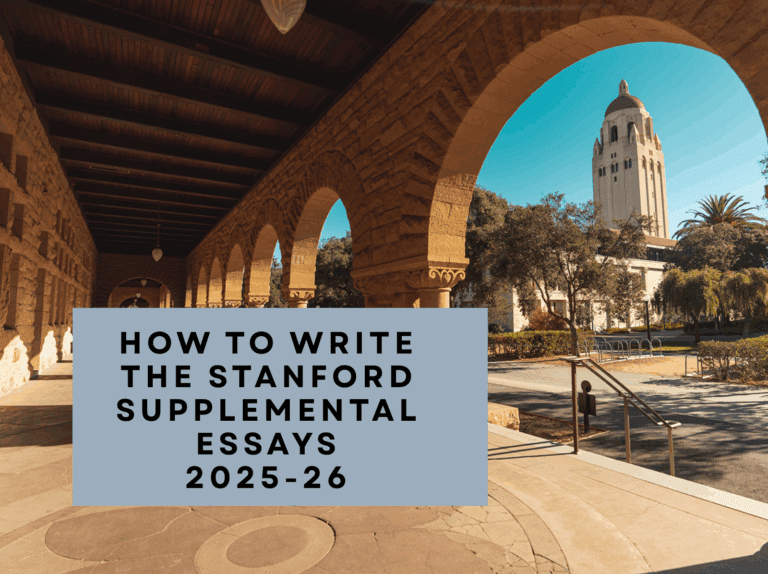Williams College is a private liberal arts college in Williamstown, Massachusetts. It was founded in 1793 and is consistently ranked among the top liberal arts colleges in the United States. Williams College is renowned for its strong academic programs and faculty. It offers a wide range of majors and interdisciplinary programs across the humanities, social sciences, natural sciences, and arts. The curriculum emphasizes critical thinking, writing skills, and analytical reasoning. Williams College also has a strong athletic tradition and competes in NCAA Division III. The college’s athletic teams, known as the Ephs, participate in a wide range of sports and have achieved success at both the conference and national levels. Williams College boasts a robust and accomplished alumni network. Its graduates have gone on to excel in various fields, including academia, business, law, the arts, and public service. The college’s alumni often maintain strong connections with the institution and actively contribute to its ongoing success.
Location
The campus of Williams College is spread across 450 acres in Williamstown, nestled in the Berkshire Mountains in Massachusetts. The campus captivates a blend of historic charm and natural beauty. The campus is known for its beautiful architecture, which includes Gothic Revival buildings, Georgian Revival buildings, and Collegiate Gothic buildings. The campus is also home to a number of natural features, including the Williams College Forest, the Hopkins Observatory, and the Mount Greylock Reservation. The Main Quad stands at the heart of the campus, bustling with activity and serving as a focal point for academic and social interactions. The campus of Williams College provides an inspiring environment that fosters both intellectual pursuits and a deep appreciation for nature.
Student Cohort Size
Williams College has a total student population of 2,307 with 2,251 undergraduate students and 56 graduate students. 79% of students are out of state and 9% of students are international. The students represent 49 states and 93 countries.
Four-Year Completion Rate
Williams College has a high retention rate of 90%. This implies that 90% of freshman return for their sophomore year. 89% of the students graduate within 4 years. 96% of the students graduate within 5 and 6 years.
Student-to-Faculty Ratio
The student-to-faculty ratio is 7 to 1. This allows for close interaction between students and professors, facilitating meaningful discussions, mentorship, and personalized attention. 75% of the classes have an average class size of less than 20 students.
Admissions
Acceptance Rate
Williams College received 10,315 applications in the regular decision round and admitted 858 students. Applicants who accept their offers of admission will join the 255 incoming students admitted through the early decision program in December to form the Class of 2027. The total acceptance rate for the 2022-2023 admission cycle is 9.8 percent, a slight increase from the consecutive record-breaking lows for the Classes of 2025 and 2026. In addition to the 858 students who were accepted, 14 students were deferred from the early decision round. The College waitlisted 1,970 students and denied admission to 7,487. During the past five admission cycles, the College has accepted an average of 35 students off the waiting list. Last year, the College admitted one waitlisted student.
Types of Admission
Students can apply to Williams College through the Early Decision or Regular Decision programs. If you are certain that Williams College is your first choice then you should apply through the Early Decision program. As soon as you get accepted to the Early Decision program you will have to withdraw any applications you have submitted to other schools. Williams College receives a higher number of applicants through the regular decision program.
Application Components:
-
Complete the Common Application
-
School Report
-
Counselor Recommendation
-
Two Teacher Recommendations
-
Mid-Year Report (Due February 8* or for schools on a trimester, when 2nd-trimester grades are available)
-
$65 Application Fee or Fee Waiver
-
Early Decision Agreement Form (Early Decision applicants only)
-
Standardized Test Scores are optional. Students who choose to submit their scores have an SAT score between 1490–1550 or an ACT score of 34–35.
-
Williams Writing Question: As a residential learning community, Williams believes that some of the most important experiences happen while living and learning alongside those different from oneself. Please describe a time when you learned or grew through the process of interacting with someone whose background, identity, lived experience, or perspective differs from your own. (150-300 words; this question will automatically populate on the Common Application and QuestBridge Application Form)
-
Optional Writing Supplement: You may submit a 3-5 page creative or analytical paper of your academic writing from last year. The paper could be a non-graded assignment on any topic. Include a description of the assignment or prompt. Please do not submit lab reports.
Read More: Northwestern College
Academics
Williams College followed the traditional two-semester calendar prior to 1967-68. Beginning in 1967-68, Williams College has been following the 4-1-4 plan. Williams has no summer session. Williams College students pursue a Bachelor of Arts degree in a core area of study. Instead of minors, students can choose to concentrate in a particular topic that draws from multiple disciplines. Concentrations can be in areas such as cognitive science, which combines psychology, computer science, philosophy, and math. Students can also pursue emerging fields, take special classes, create their own majors, and participate in experiential education or off-campus study.
Williams College does not require any specific courses, but students must take at least three courses in the arts and humanities, three courses in the social sciences, and three courses in science and mathematics. They must also take at least two writing-intensive courses and one course that focuses on mathematical and abstract reasoning. Finally, all students must take at least one course that examines how groups, cultures, and societies interact with and challenge each other.
Most Popular Majors:
Economics
Political Science and Government
Computer Science
Biology
Psychology
Mathematics
English
Chemistry
History
Arts
Special Academic Programs
Williams tutorials are a unique academic experience that adapts the Oxford University style of education. In a tutorial, two students work closely with a professor to develop independent work, such as essays, lab reports, or art projects. They then critique each other’s work and receive feedback from the professor. This process helps students to sharpen their critical thinking skills, improve their writing, develop ideas, and defend their positions. Tutorials also give students a sense of ownership of the academic process and inspire them to explore new topics.
Over half of all Williams students take at least one tutorial during their time at the college. There are 60 to 70 tutorials offered each year across the curriculum, so there is a wide range of topics to choose from.
Williams College and Exeter College, Oxford, offer a yearlong program for Williams students. Students are full members of Oxford University and have access to all of its facilities, libraries, extracurricular activities, and resources. The Williams-Exeter Programme (WEPO) is a unique opportunity to participate fully in the intellectual and social life of a world-renowned university.
The Winter Study Program is a unique opportunity for students to explore their interests and learn in a new way. The program runs from January 3 to 26, 2024. The Winter Study Program is a great way for students to take a break from the regular semester, learn something new, and explore their interests. Students who participate in the program often say that it was one of the most rewarding experiences of their college career. The program offers a variety of courses and experiences that promote experiential learning, self-expression, student exploration, and wellness.
-
Experiential learning courses allow students to learn by doing. This could involve traveling to a new place, interning in a field of interest, or conducting independent research.
-
Self-expression courses encourage students to explore their creativity through art, music, dance, theater, and writing.
-
Student exploration courses allow students to learn about new topics and cultures. This could involve taking a foreign language, history, or science course.
-
Wellness courses focus on physical and mental health. This could involve taking a yoga class, learning about nutrition, or exploring mindfulness techniques.
Cost of Attendance
|
2024-2025 Comprehensive Fees
|
|
| Tuition | $68,240 |
| Housing | $8,750 |
| Meals | $8,510 |
| Activities & Residential House Fees | $320 |
| Study Away Fee (as applicable) | $1,500 |
|
Total without Study Away:
|
$85,820 |
|
Total with Study Away:
|
$87,320 |
Student Life
Williams College is a great place for students who are curious and engaged. There are many opportunities to explore different interests and activities, both inside and outside of the classroom.
There are over 150 student-run organizations on campus, covering a wide range of interests. Students can also get involved in more than 350 service organizations in the local community.
In addition to the 32 NCAA Division III varsity sports teams, Williams offers a variety of club sports and physical activities. The Williams Outing Club is a popular choice for outdoor enthusiasts, offering a wide range of activities, including hiking, biking, climbing, and camping.
Read more: Vassar College
Fun Fact
Mountain Day is a Williams College tradition that has evolved over the years. It originated in the early 1800s as two class holidays, Chip Day and Gravel Day, when students would clean up the campus after a long winter. In 1827, President Edward Dorr Griffin mentioned a holiday “to go upon the mountain,” and in 1857, Bald Mountain Day was introduced, encouraging students to spend time outdoors on a class-free day. By 1874, a fall counterpart was established, and Mountain Day as we know it today was born.
On Mountain Day, students and faculty are free to spend the day doing whatever they please. Some popular activities include hiking, biking, swimming, picnicking, and attending community events. The day is a chance for the Williams College community to come together and enjoy the beautiful fall weather.
Mountain Day is a cherished tradition at Williams College. It is a day for students to relax, recharge, and connect with their community.
To conclude, Williams College is a great place to get a liberal arts education. The college offers a rigorous academic program, a strong student body, and a beautiful campus. If you are looking for a challenging and rewarding college experience, Williams is a great choice.
We can help you with your college application process. Working with study abroad consultants, overseas education consultants, or, as more commonly known, college counselors, can help you plan ahead and make those high school years count. Ivy Central offers exceptional focus to help you prepare for college admissions throughout the high-schooling years. Start today!








